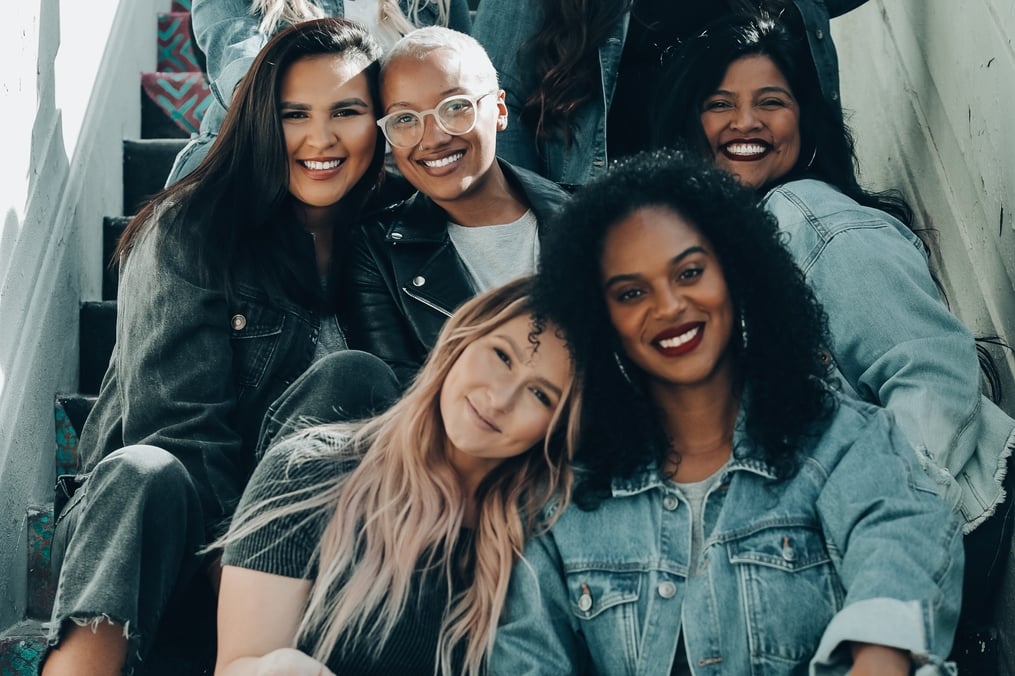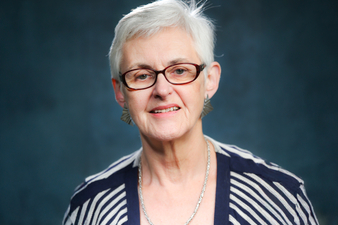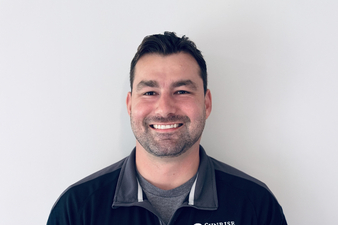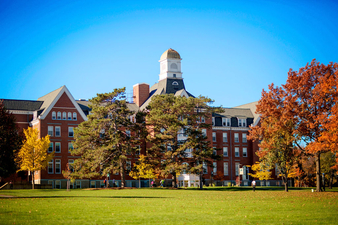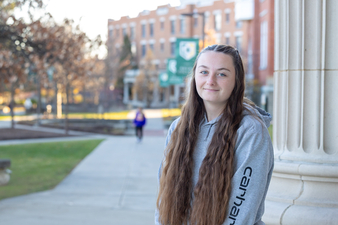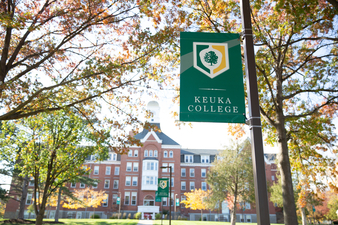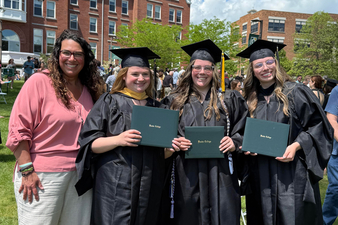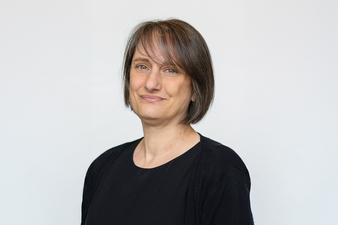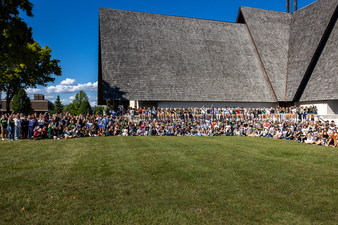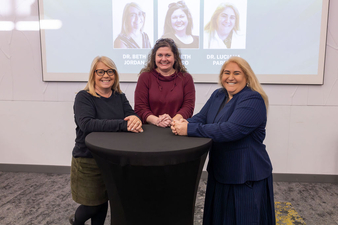Last month in Washington, D.C., the world watched as Vice President-elect Kamala Harris took the oath of office. It was a moment of reckoning.
As she swore to uphold the Constitution, it sparked a conversation about the historical underrepresentation of women and African Americans in political leadership and elected office and the urgency of eliminating institutional barriers.
Others remarked on the significance of the many firsts the 2020 election represented. As the first woman of African and Asian descent, graduate of a Historically Black College and University (HBCU), and member of a distinguished African-American sorority to serve as vice president, Kamala Harris’s achievements stimulated excitement and hope among countless women and men (also little girls and boys) spanning diverse communities and transcending social, economic, political, and geographical borders.
I am a social work professor who currently teaches at the undergraduate level. During my first class meeting following the inauguration, I met students who were eager to share their impressions of the event and its meaning to them as women. One student expressed joy at having witnessed “so many confident women leaders” assembled on the steps of the Capitol Building, including former first ladies Michelle Obama, Hillary Clinton, and Laura Bush. Another student was struck by the color purple in the clothing choices of Vice President Harris, Michelle Obama, and other prominent women leaders and guests. Still another student expressed hope that Vice President Harris would succeed in serving the nation without constraint or risk of harm. As women, they were moved by the vice president’s ability to overcome barriers by using her intelligence, persistence, and family support. As social work students, they understood that it’s only when people work collectively that inequality and social injustice can be ameliorated.
In the aftermath of the tragic killings of George Floyd, Breonna Taylor, and other African Americans by law enforcement officials, the public discourse about racism seemed to increase but the subject was difficult for many to engage. Despite the uneasiness, avoiding conversations about what we all saw happening publicly was not the answer. I intentionally asked my students to share their understanding of the role that social workers are expected to play in efforts to prevent and eliminate racism and discrimination as endorsed by the National Association of Social Workers (NASW). In his response, the only male student in the class argued that the popular perception that people lack education about racial injustice should not be used as an excuse for inaction.
As an educator, it was gratifying to witness these students giving voice to concerns that are deeply impacting people, as well as raising their own aspirations in the field.
A student in one of my generalist practice classes talked about traveling 40 miles from her home to participate in a Black Lives Matter peaceful protest march in Syracuse, N.Y., because she was frustrated by the racist comments in her community and wanted to do something to support the movement.
Following the death of Daniel Prude in Rochester, N.Y., a student in another class acknowledged the impact of economic disparities in Black and Latino communities in her hometown and vowed to return to the Rochester area to collaborate with law enforcement and health professionals to deliver better mental health services to match the needs of families and individuals in distress.

During discussions about school-based discipline and the criminal detention of girls, students raising African-American children shared their fears about how to keep them safe at school and in the community.
One mother who aspired to become a school social worker stressed the importance of teachers, administrators, youth, and parents relying on the expertise of social workers to advocate for high-quality learning opportunities for students and contribute toward tailoring supportive programs to strengthen social and emotional health and wellbeing at school.
As an educator, it was gratifying to witness these students giving voice to concerns that are deeply impacting people, as well as raising their own aspirations in the field. The maturity and thoughtful consideration that characterized their ideas were remarkable. Their willingness to engage with peers and partners around common interests in promoting social justice and community strengths suggested a high level of commitment that we look for among new professionals.
Social workers have a lot in common with public servants and elected officials who are trusted in diverse communities. The two groups feature individuals who stress service, hard work, social justice, and working in partnership with diverse populations to make sure needed resources reach them in neighborhoods, communities, cities, and states. NASW recognizes the women leaders in the Senate and House of Representatives who are also members of the profession.
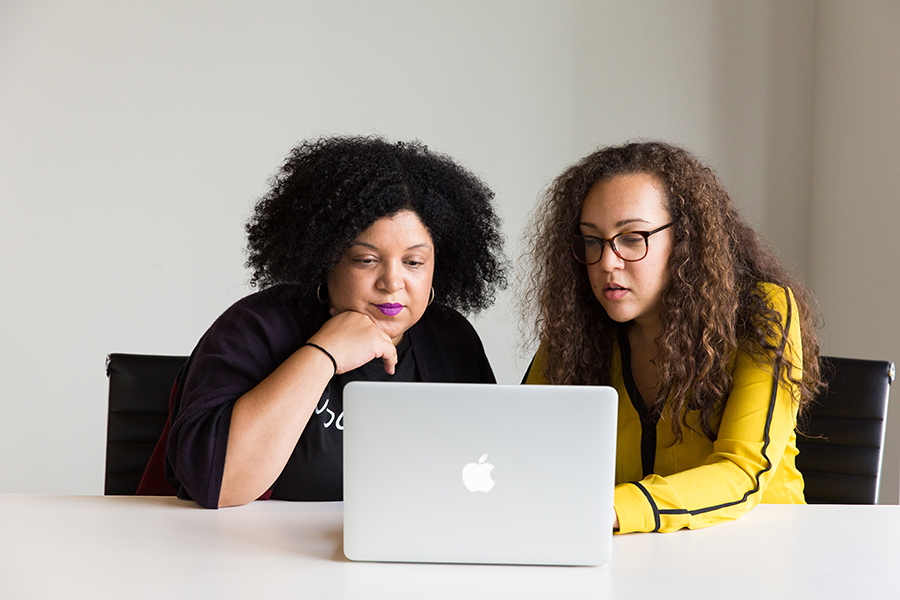
As part of current conversations about professional development with students who are nearing the end of their BSW degree programs, I encouraged them to talk about how the pandemic was influencing their career aspirations in the field. Despite the ongoing uncertainties in the world, all appeared to rededicate themselves to helping others and making a positive difference, especially within low-income communities.
When I asked the students what sparked their initial interest in social work, they took turns remembering senior members in the field who first introduced them to the profession and influenced their personal interests to follow in their footsteps. They remarked about qualities they most admired in these role models such as persistence, respect, communication, and the life-long faithfulness to protect those who are younger and older.
As social work students, they understood that it’s only when people work collectively that inequality and social injustice can be ameliorated.
When reflecting on her own activism and development as a leader, Vice President Harris consistently named her mother, Shyamala Gopalan Harris, as her most significant inspiration. In her public comments, she remembered her as a scientist, educator, activist, and advocate who encouraged her daughters to embrace their social and cultural roots and dream big. The vice president has also acknowledged the massive efforts of Native American, White, Asian, Latina, and Black women, in particular, to dismantle social and racial injustice and achieve civil rights for all people. While the extraordinary sacrifices of these women are not well recognized, Vice President Harris paid tribute to them when she said she “stands on their shoulders.”

One of the most important traditions in African-American culture is our preservation of events, activities, and names of people (past and present) who used the power of their convictions to fight for justice within their communities and beyond. Women in the United States representing diverse social, economic, and cultural backgrounds have long collaborated to remove barriers leading to the building of better program and institutional opportunities for youths, adults, and families in rural and urban locations. They include everyday women who were taught early in their youth about the inevitability of struggle and necessity of staying the course towards achieving new knowledge and pathways for freedom for themselves and others.
Many partnered with groups and organizations in such areas as education, health, agriculture, criminal justice, labor, and civil rights and became regarded as passionate change agents who put the needs of others first.
As social workers and women, we should acknowledge their influence, say their names, and lift them as models in the ongoing work to promote the growth and development of our students and ourselves: Ida B. Wells, Dorothy Height, Dr. Charlotte Hawkins Brown, Mary Church Terrell, Thyra J. Edwards, Wilma Mankiller, Dolores Huerta, Dr. Shirley J.Jones, and Dr. Ruth McRoy.
The historical and contemporary achievements of these women and many others teach us that the vital work of overcoming obstacles to building trusted relationships must continue. With increased partnerships, the current student members of our profession will be in strong positions to promote social justice and support social work values, research, programs, and policies.
Sekai Turner, Ph.D., M.S.W., M.P.S., is an assistant professor of Social Work at Keuka College, where she teaches at both the undergraduate and graduate levels. Dr. Turner earned her Ph.D. in Human Development at the University of Maryland, her M.S.W. at the University of Pittsburgh, her M.P.S. in Africana Studies at Cornell University, and her B.A. in psychology at Spelman College.
About The Social Work Program
Field Period®
Complimenting your classroom study, you’ll gain real-world, practical experience as early as your first year through our Field Period® program. For students taking classes full-time at Keuka College, you’ll complete one Field Period® each year you’re a student. This is a great time to challenge yourself and explore the areas of social work that will enhance your foundational skills.
Field Practicum
During your capstone course, you’ll be placed as a professional-in-training in a human service agency. You’ll work side-by-side with licensed field instructors in a safe, supervised environment—paving the way for you to transition from student to professional.
Keuka College’s social work faculty are active scholars and researchers, and offer you the opportunity to partner on projects if that’s where your interests lie. Our faculty understand the importance of scholarship and its ability to enhance our understanding and advocacy for important societal and community-based issues.
Some of their research interests include the treatment of traumatized youth, transitioning to a competency-based education, an examination of local foster care practices, and building social capital.
You’ll take courses focused on research methods, evaluation strategies, and the various policies that govern the social work profession—all to assist you in becoming an active researcher in the areas that matter the most to you. And if you’re interested in pursuing an advanced degree, you’ll have a leg up on knowing the right questions to ask and how to find the answers.
At Keuka College, your social work faculty are more than just great teachers. They’re seasoned professionals and innovative educators committed to your success. With background and expertise in traumatic brain injury, youth and adolescent counseling, women’s rights issues, solution-focused casework practice, advocacy for the disabled and underserved populations, mood disorders, effects of the child welfare system, and domestic violence, each of your professors come to the classroom with real-world, clinical experience.
They serve as role models, leaders, practitioners, and advocates dedicated to helping you achieve your educational goals, paving the way to improve the health of the nation and the world.
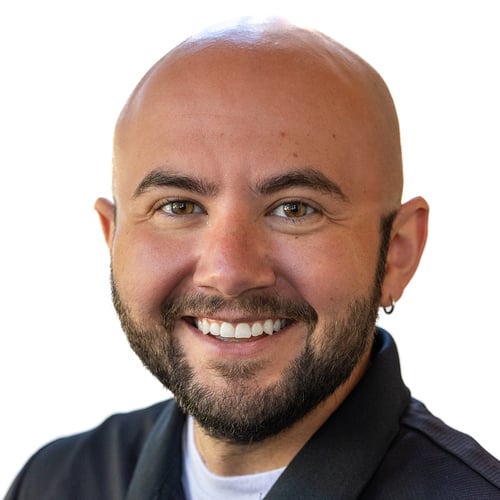
Jake Abraham ’16
Assistant Professor of Social Work
Academic Credentials
- Keuka College
- B.S.W.
- University at Buffalo
- M.S.W.
Biography
Jake Abraham is a 2016 Keuka College alumnus and received his master’s degree from the University at Buffalo. He has provided numerous trainings related to the LGBTQ community and, for the last five years, has worked in various school systems with children from kindergarten to 12th grade. Jake has experience in working in a clinical setting, as well as doing street outreach and prevention.
Professional Interests
Education and support of the LGBTQ+ community. Working with children and their families. Exploring the impact of trauma and grief across the lifespan.
Katie Basu, LCSW-R
Visiting Assistant Professor of Social Work
Academic Credentials
- Mansfield University
- B.S.W.
- Temple University
- M.S.W.
Biography
Katie is committed to advancing social workers’ expertise in evidence-based practice theories to foster positive therapeutic outcomes. Her professional background includes significant experience in program development and leadership within rural mental health and substance-use treatment settings, as well as providing direct clinical care.
Katie has specialization in treating co-occurring disorders, with a particular emphasis on trauma and adverse childhood experiences. She is dedicated to the importance of clinical supervision for early-career social workers and holds certification as a clinical supervisor. Additionally, Katie serves as a national trainer in the prevention and management of disruptive behavior. She has received national recognition from the Department of Veterans Affairs for her work in improving utilization of measurement-based care tools to reduce suicidality among high-risk veteran populations and for expanding access to residential services for veterans nationwide.
As a consultant for local rural health networks, Katie offers subject matter expertise on substance use and mental health treatment, contributing to data collection and analysis to inform Community Health Improvement Plans. Katie has been published through the Bureau of Justice Assistance Comprehensive Opioid, Stimulant, and Substance Abuse Program regarding Peer Recovery Support Services in NY Opioid Intervention Courts. She graduated as an LMSW from Temple University in Philadelphia and received her BSW from Mansfield University of Pennsylvania.
Professional Interests
Reducing suicidality among high-risk veteran populations through measurement-based care. Accessibility and inclusion of peer recovery advocates for rural MH and SUD initiatives. Rural overdose trends, Data collection and naloxone training. Sustainable program development for MH and SUD services within the agricultural community. Enhancing the role of clinical supervision for new social workers. Prevention and management of disruptive behavior. Public policy and social change.
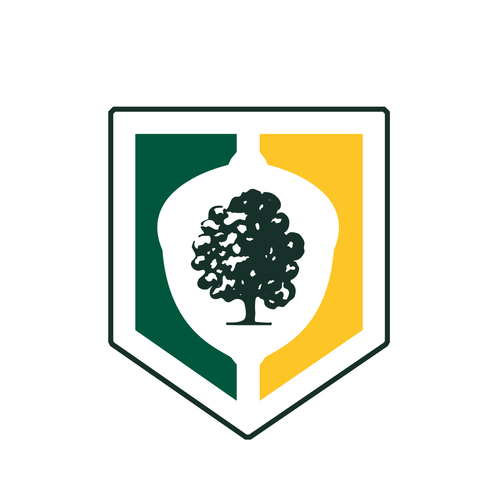
Rita Braun
MSW Field Director
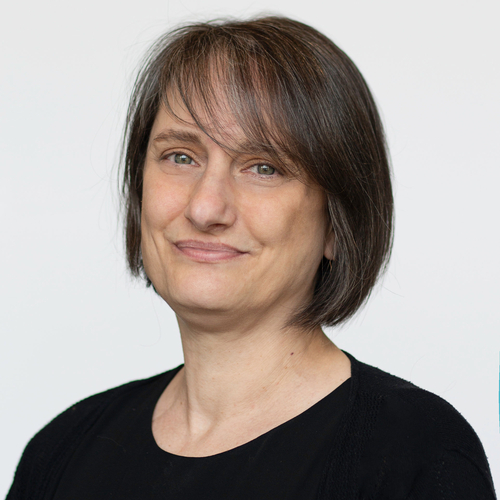
Dr. Julie Burns
Associate Professor of Social Work
Academic Credentials
- Union Institute and University
- Ph.D.
- Nazareth College
- M.S.W.
- SUNY College at Buffalo
- B.S.
Biography
Dr. Julie Burns began her interest in Social Work as an activist during her teenage years and has been a professional Social Worker for 30 years.
She has participated in community organizing, planning, and leading demonstrations of civil disobedience in her community. She has a passion for working with people with disabilities and has spent the bulk of her career working with people with intellectual disabilities and their families in grassroots organizations.
Her work as direct care staff, educator, trainer, counselor, program developer, and administrator has provided a solid foundation for linking theory to practice. She has always believed that education can change the world and is deeply honored to teach the next generation of Social Workers.
Professional Interests
Public Policy and Social Change, Women's Healthcare, Reproductive Justice, Intellectual Disabilities, Human and Civil Rights, Diversity, Equity and Inclusion, Narrative Inquiry and Critical Theories.
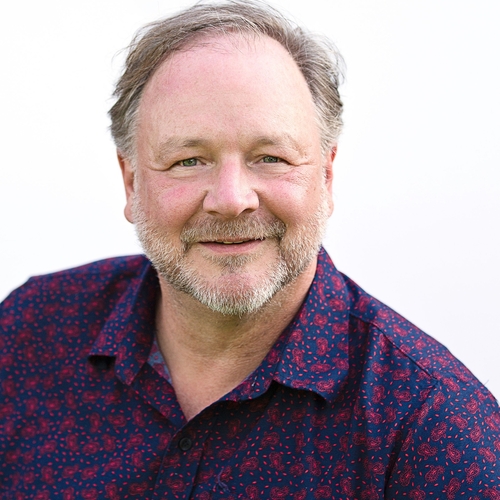
Christopher Clinton
Associate Professor of Social Work
Academic Credentials
- Syracuse University School of Social Work
- M.S.W.
- Binghamton University
- B.A.
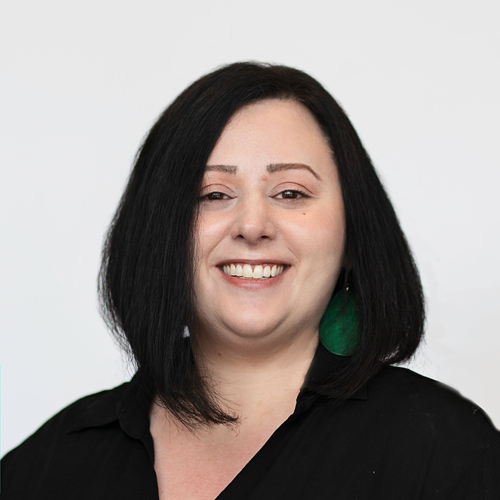
Cindy Easling
Administrative Assistant
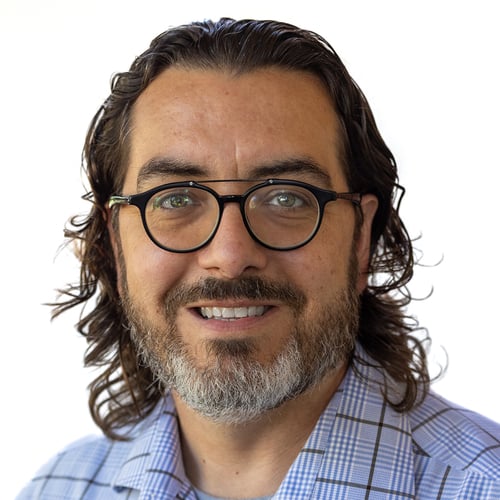
Michael Emmart
Assistant Professor of Criminal Justice
Academic Credentials
- Liberty University
- B.S. in Psychology
- Kansas State University
- M.S. in Positive Youth Development
- Liberty University
- Ed.D. in Curriculum & Instruction
Biography
Dr. Michael Emmart is an oft sought-out voice on initiatives involving child welfare, juvenile justice, and cross-over youth. He served in a variety of roles during more than 25 years in the field, including direct service staff, case worker, counselor, trainer, senior administrator, nonprofit executive, and university-based consultant. While working as a subject matter expert employed by the University of Albany, co-located with the NYS Office of Children and Family Services, he worked extensively on the Raise the Age initiative, as well as implementation of the Family First Prevention Services Act.
Dr. Emmart is a founding member of the Institute for Just Outcomes through Conversation (IJOC), which is housed within Case Western Reserve University’s Fowler Center for Business as an Agent of World Benefit, and has served as executive director since its inception. IJOC’s mission is to foster community-driven change through conversations that empower communities to thrive. He has spoken and written extensively on the value of incorporating positive, inquiry-based conversations in our communities and workplaces.
Professional Interests
Strengthening the connection between communities and the systems intended to serve them. Appreciative inquiry. Positive nonviolence. Community-engaged prevention science. Designing and evaluating initiatives that build collective efficacy, foster authentic partnerships, and shift power toward community-defined visions of success. Developing strengths-based tools to support positive systems change and deepen community voice in policy and service delivery.
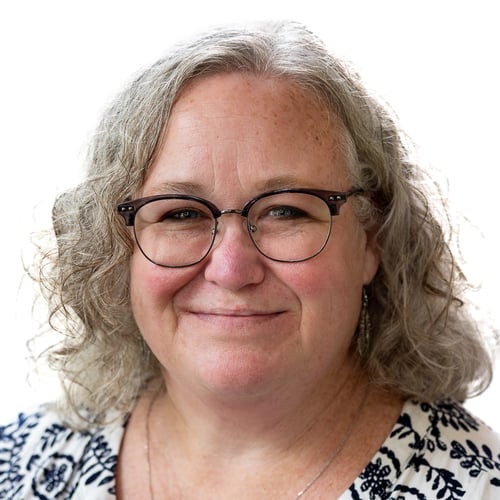
Amy Hickey-Smith ’10 M’20, LCSW
Assistant Professor of Social Work
Academic Credentials
- Keuka College
- B.S.W.
- Keuka College
- M.S.W.
Biography
Amy Hickey-Smith (she/her) is a Licensed Clinical Social Worker and educator with over a decade of experience in trauma-informed care, feminist clinical practice, and LGBTQ+ mental health. A proud Keuka College alumna, she brings an anti-oppressive, community-focused lens to both her teaching and clinical work. Her professional background includes hospital social work, nonprofit leadership, private practice, and higher education. She specializes in gender-affirming care, relational diversity, and supporting trauma survivors. Amy is the founder of the LGBTQ Center of the Finger Lakes and an active Pride organizer. In addition to teaching across the MSW curriculum, Amy serves as vice president of the Board of Directors at the Hickok Center for Brain Injury and is a long-standing member of the NASW-NYS Diversity and Inclusion Committee.
Professional Interests
Trauma-informed and feminist clinical social work. LGBTQ+ mental health and gender-affirming care. Inclusive and anti-oppressive pedagogy. Ethical non-monogamy and relational diversity. Community organizing and pride-based activism. Private practice and program development for marginalized communities.

Tracy Leet
Assistant Professor of Social Work
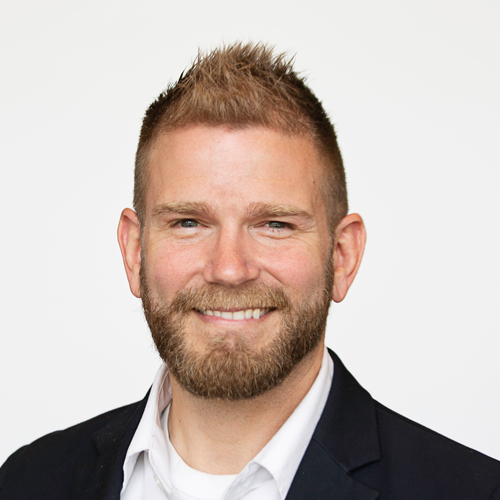
Dr. Jason McKinney
Professor of Social Work
Academic Credentials
- University of Rochester
- Ph.D.
- Roberts Wesleyan College
- M.S.W.
- Roberts Wesleyan College
- B.S.W.
Biography
Dr. Jason McKinney earned a Bachelor of Science degree and Master of Science degree in Social Work from Roberts Wesleyan College and a PhD in Human Development from the University of Rochester. Dr. McKinney has authored articles in peer reviewed journals, including Child and Family Services Review and The Journal of Critical Social Work. He has also published articles in The New Social Worker. His research interest is in the developing self across the life span, and most recently within caregiver-child interactions. In 2006, Dr. McKinney received the Scandling Scholar Award from the University of Rochester. Dr. McKinney's practice experience includes family therapy, parent-training curriculums, and the design and implementation of a successful therapeutic foster care program in Rochester, NY. Prior to joining Keuka College, Dr. McKinney taught at Ashland University as an Assistant Professor of Social Work and adjunct at The Greater Rochester Collaborative, State University of New York (SUNY, Brockport) and Nazareth College, and also at Roberts Wesleyan College. He places a strong emphasis on the need for research in social welfare and enjoys providing students with opportunities for meaningful research.
Professional Interests
Research in Selfhood and Identity Development within Cultural Categories Across the Lifespan Using Socio-Linguistic and Discourse Analytic Methodology, Effects of the Child Welfare System on Children and Families, Community-based Action Research on Aging Well.
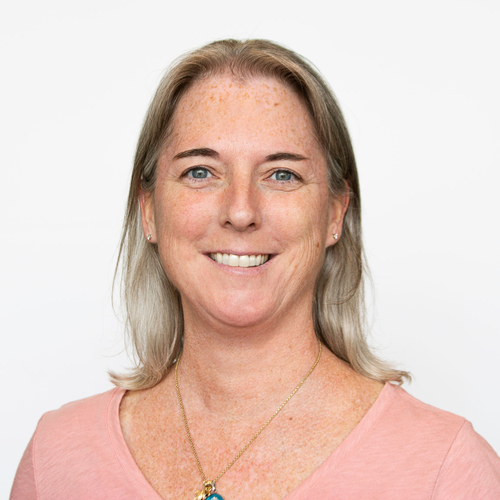
Jen Mealey ’99
Professor of Social Work
Academic Credentials
- Nazareth College
- M.S.W.
- Keuka College
- B.S.

Andrea Mourey
Instructor of Criminology
Academic Credentials
- Walden University
- Ph.D. in Public Policy and Administration
- Marist College
- M.S. in Public Administration
- Columbia College
- B.S. in Criminal Justice & Psychology
- Onondaga Community College
- A.S. in Science
Biography
Dr. Mourey is a seasoned criminal justice professional with more than 30 years of combined experience in law enforcement, military leadership, and higher education. She is a retired police sergeant with the Onondaga County Sheriff's Office, a lieutenant colonel and supervisory investigator with the National Guard Bureau’s Office of Complex Investigations, and the former director of Campus Safety and Law Enforcement at Onondaga Community College. In her role at OCC, Dr. Mourey led department operations, implemented a student-centered community policing model, and served as incident commander for campus emergencies, coordinating efforts with local, state, and federal agencies.
Dr. Mourey has been an adjunct professor at Keuka College since 2005, teaching a variety of undergraduate and graduate courses, such as Juvenile Delinquency, Current Issues in Law Enforcement, Statistics for Action Research, and Criminal Justice as Public Policy. Recognized as Adjunct Instructor of the Year in 2015, she is known for her rigorous, student-centered instruction and has frequently been requested to serve on student defense boards.
Professional Interests
Education, national service, and public safety. Evidence-based teaching, curriculum development, and mentorship in criminal justice, public administration, and ethics. Integrity, leadership development, and mission readiness in military service. Complex investigations and organizational accountability. Investigative excellence, interagency cooperation, and fostering public trust in law enforcement. Public service, continuous learning, and ethical application of authority.
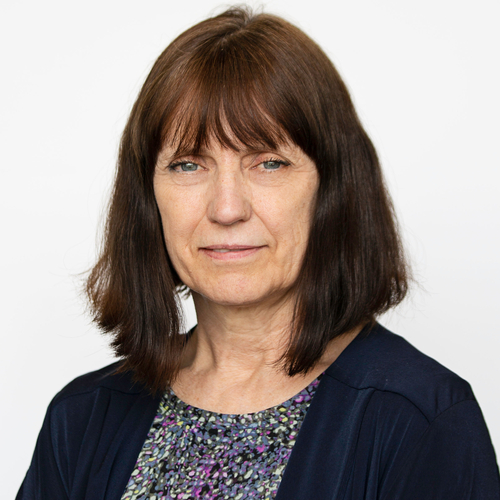
Dr. Vikki O'Connor
Professor of Social Work
Academic Credentials
- Syracuse University
- Ph.D.
- Syracuse University
- M.S.W.
- SUNY Empire State College
- B.S.
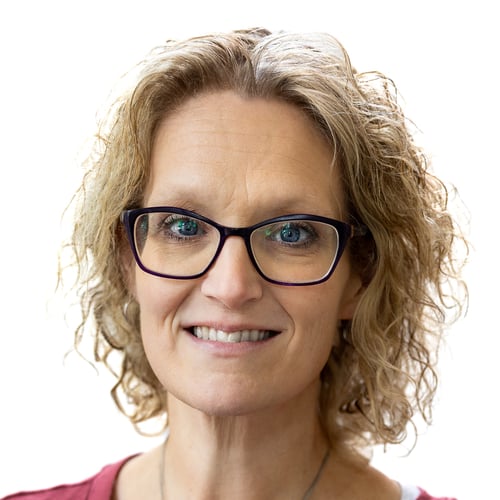
Dr. Bethanie Pacheco, LCSW
Assistant Professor of Social Work
Academic Credentials
- University of Dayton
- B.A. in Criminal Justice
- Roberts Wesleyan College
- M.S.W.
- University of Louisville
- D.S.W.
Biography
Dr. Beth Pacheco earned a Bachelor of Arts degree in Criminal Justice from the University of Dayton, a Master of Social Work degree from Roberts Wesleyan College, and a Doctor of Social Work degree from the University of Louisville. Dr. Pacheco’s practice experience includes emergency psychiatry, inpatient psychiatry, individual therapy, clinical supervision, program evaluation and process improvement, development of in-service training curriculums, and orientation and onboarding programs for telehealth therapeutic programs.
Prior to joining Keuka College, Dr. Pacheco taught as an adjunct at SUNY Brockport and provided in-service training and field placement supervision for MSW student therapist interns at the University of Louisville. She is committed to bridging theory and practice through critical thinking and real-world application. She places a strong emphasis on socially and culturally competent care and is passionate about preparing students to lead with integrity, empathy, and effectiveness in diverse spaces.
Professional Interests
Rural mental health. ADHD and neurodiversity clinical interventions. Life skill building. School setting and classroom support. Telehealth therapy competency and program development. Clinical supervision competency. Effects of sibling loss on family dynamics, roles, and relationships throughout the life span. Program evaluation and quality process/policy improvement.
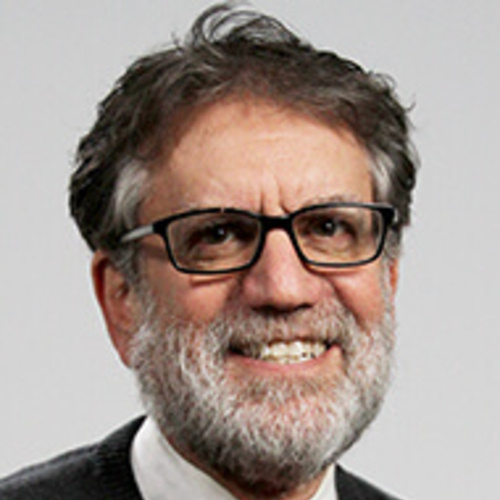
Dr. Ed Silverman
Professor of Social Work
Academic Credentials
- University of Maryland
- Ph.D.
- SUNY Binghamton
- M.B.A.
- University of Maryland
- M.S.W.
- SUNY Binghamton
- B.A.
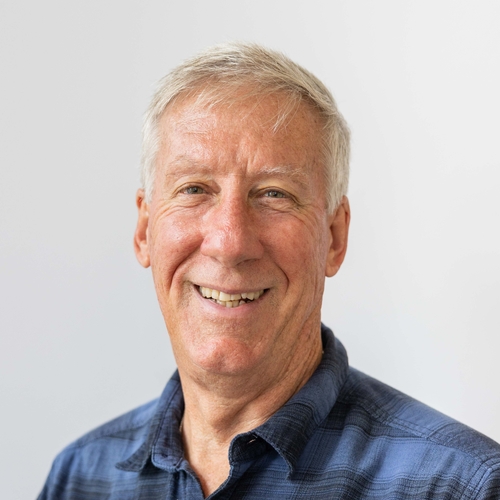
Michael Smith
Instructor of Criminal Justice
Academic Credentials
- West Chester University
- M.S. in Criminal Justice
- Wilmington University
- B.S. in Criminal Justice
- University of Great Falls/College of
- A.S. in Criminal Justice
Biography
Michael Smith joined the U.S. Air Force as a security policeman during the Vietnam and Cold War eras. He completed an associate degree in criminal justice while on active duty at the University of Great Falls in Montana. He continued his collegiate and professional education while working 12-hour patrol shifts. Prof. Smith joined patrol operations and rose through the ranks – patrolman, sergeant, captain, officer in charge – before retiring as a chief. His past assignments covered a regional County S.W.A.T., DARE, radar, accident reconstruction, physical training, and firearms instructor. Prof. Smith attended the FBI National Academy in Quantico, Virginia, graduating as a member of the 209th session. He is a past-president of the Gloucester County Police Chiefs Association and remains active in the association, even after his retirement.
Prof. Smith has worked with civilian educators, businesses owners, and law enforcement support organizations to make presentations on behalf of officer awareness, terrorism and bioterrorism, domestic violence, and police/community relations, As chief, he and his administrative staff officers worked on local and regional “large scale” security projects that affected law enforcement funding for critical infrastructure protection.
Prof. Smith taught as adjunct faculty for more than 18 years before securing his current full-time instructor position with Keuka College. He relinquished his certification with the New Jersey State Police Training Commission as an instructor after serving for 32 years (without compensation). He has attended and participated in executive leadership exchange development seminars over several years, visiting London, the Greater Manchester Police, the Garda Academy in Templemore, Ireland, and The Police College in Scotland.
Prof. Smith is also a life member of the International Association Chiefs of Police (IACP) and has been a member of the FBI National Academy Associates joining three different chapters: The New Jersey and Eastern Pennsylvania chapters and, currently, the Eastern Canada and New York chapter.
His military, law enforcement, career development, professional educational experience and academic teaching span a total of 48 years.
Professional Interests
Prof. Smith is dedicated to improving the level of professionalism, ethical and moral commitment, accountability, integrity, dedication, and expertise of those who demand more of themselves, while seeking to improve individual purpose and achieve organizational excellence. He remains connected and continues to offer his knowledge and practitioner experience and diverse knowledge to his students at Keuka College. He offers students the ability to recognize and understand their new role(s) in a society that is changing far more rapidly than anyone can keep pace with … organizationally, professionally, politically, and economically.
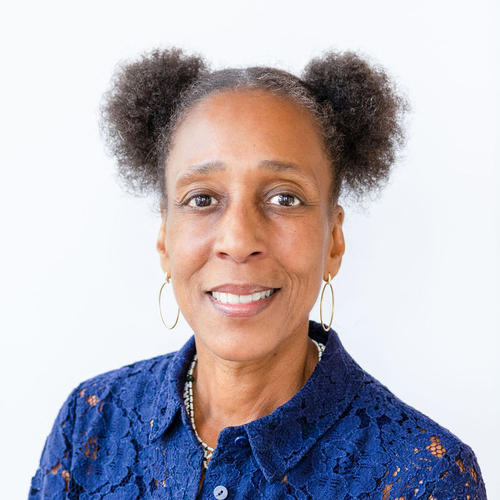
Dr. Sekai Turner
Honors Program Director
Associate Professor of Social Work
Academic Credentials
- University of Maryland
- Ph.D. in Human Development
- University of Pittsburgh
- M.S.W. in Social Work
- Cornell University
- M.P.S. in Africana Studies
- Spelman College
- B.A. in Psychology
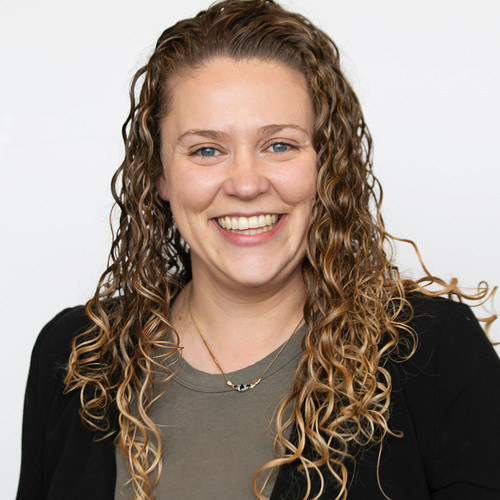
Melissa Vangellow ’16
Director of Clinical Placements
Academic Credentials
- New York University
- M.S.W.
- Keuka College
- B.S. in Social Work
- Keuka College
- B.A. in Psychology
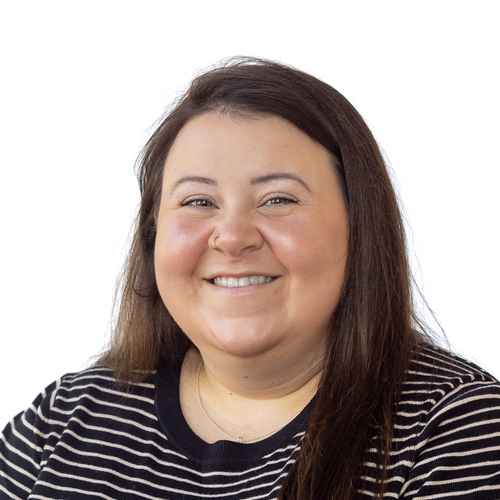
Kathleen Walker
BSW Field Director
Keuka College’s bachelor’s in social work is accredited by the Council on Social Work Education (CSWE). Our students are prepared for, and encouraged to, pursue master’s-level social work education and training, and because of our accreditation, graduates may apply for advanced standing in these programs.
MSW programs around the country accept a percentage of applicants in advanced standing, which allows students to graduate with their master’s degree in one year as opposed to the traditional two years.
Learning Outcomes
The Council on Social Work Education (CSWE) requires all programs to measure and report student learning outcomes. Students are assessed on their mastery of the competencies that comprise the accreditation standards of CSWE.
Request More Information
There's so much you'll love about Keuka College — we can't wait to get to know you better and tell you more!

